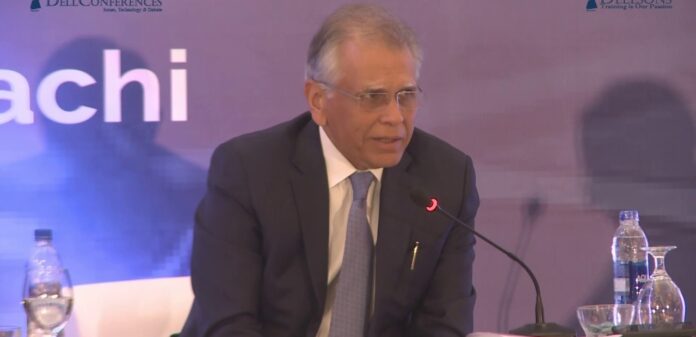KARACHI: Arif Usmani, the President and CEO of the National Bank of Pakistan, categorically denied allegations that he had been involved in money laundering in Nigeria, an issue which had been raised in the National Assembly’s Standing Committee on Finance and Revenue recently.
During the committee proceedings, Minister of National Assembly (MNA) Ahsan Iqbal alleged that the NBP president, during his services in Nigeria, was involved in money laundering.’
“While the country is facing threats at FATF, the NBP president has allegedly been involved in money laundering,” he claimed.
In an interview with Profit, Usmani denied the claims and termed the allegations as ‘frivolous’.
Between July 2001 and September 2002, Usmani served as the West Africa Region Head and Managing Director of Citibank Nigeria.
A case was filed in 2003 by the National Drug Law Enforcement Agency (NDLEA) of Nigeria of money laundering against Arif Usmani, and one other bank employee, in a Federal High Court in Lagos, Nigeria. The prosecution alleged that the bank had failed to report an international transfer to the Central Bank of Nigeria.
Profit had access to, and examined, two key documents provided by the NBP.
The first document is from the Federal High Court of Nigeria, dated October 6, 2003, which stated that the charges were dismissed based on a ‘lack of seriousness on the part of the prosecution’.
The second was a letter from Citibank Nigeria, which said Usmani had not committed money laundering during his time as Managing Director.
In conversation with this scribe, Usmani stressed that money laundering could not have been committed, as after his stint in Nigeria, he then worked in four different banks in three different countries, which meant that he had to be cleared by three different regulatory bodies.
Between November 2003 and August 2007, Usmani was the Chief Risk Officer of the Samba Financial Group in Saudi Arabia. Between January 2008 and March 2012, he served as the Managing Director of Citibank Pakistan. Then, between March 2012 and October 2013 he was the Global Head of Wholesale banking at Abu Dhabi Islamic Bank (ADIB). Between November 2017 and February 2019, he was the Chief Risk Officer at Mashreq Bank. Both ADIB and Mashreq Bank are based in the UAE.
According to Usmani, he had to clear stringent requirements of Saudi Arabia, Pakistan, and the UAE. If there was any merit to the Nigerian case, then he would not have passed their regulatory requirements.
In both the committee hearings, and in conversation with Profit, Usmani said that he believed the case had come about because he had dismissed an employee of Citibank Nigeria. The former employee’s wife had tried to ‘stir up controversy’ using political and journalistic connections in Nigeria.
NBP FRAUD
In the committee hearing, the NBP president had said that the bank’s chief internal auditor, Aamir Sattar, had been removed over fraud.
Usmani told Profit that the dismissal by the board had come about due to the fraud scandal in February 2020.
At the time, an internal NBP inspection team had discovered fraud of Rs385 million in the Khaira Gali and Khanaspur NBP branches. In September 2020, the Federal Investigation Agency (FIA) arrested five officials of the National Bank of Pakistan (NBP) and one foreigner for involvement in what turned out to be Rs472 million fraud at those branches.
According to Usmani, this fraud occurred despite an audit that had been conducted of those two branches in August 2019. The board had then dismissed Sattar.
It is part of a larger process of accountability at the bank. Already, two senior executive vice presidents and three executive vice presidents were dismissed at NBP.




































mera loan maaf kejeye
branch oghi 0617
account number 4086403303
name naseebullah
Since I was a CEO that’s why my name came in the issue of money laundering. A career-banker in the worst off regulation region of the West Africa is anything but transparent. The logic of scrutiny holds no water in the stashy, trashy circumspecting world of banking.